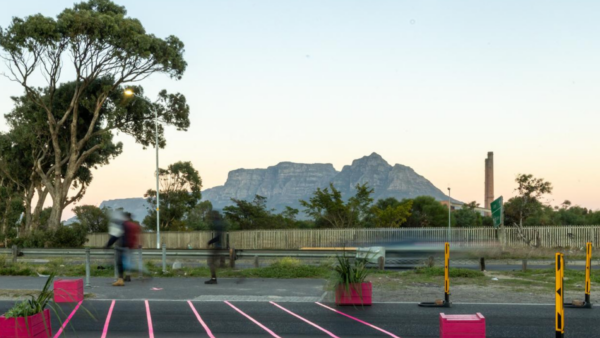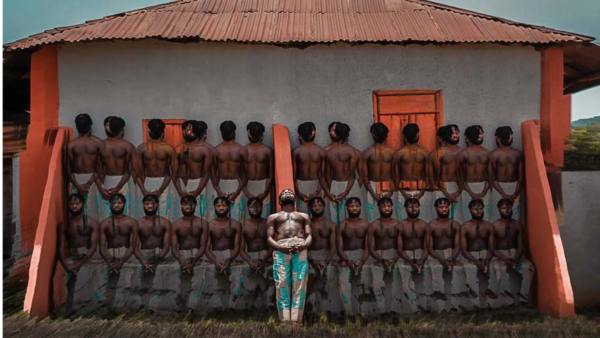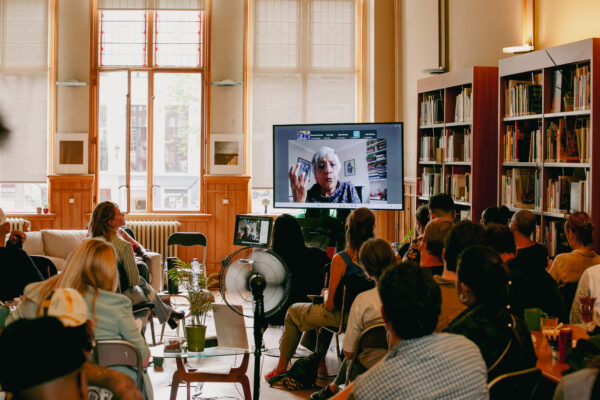

Open Call Climate Justice – 11 projects selected
A total of 11 projects have been selected in the Open Call Climate Justice. Team Internationalisation reflects on the selection.
17 December 2024
The Open Call Climate Justice is part of the multi-year programme Inclusive Cities and Societies through Design. The call was issued for designers, makers and collectives working – in collaboration with a partner from a country in Africa – on a project concerning climate justice or injustice.
general impression
The selected projects show a deep commitment to climate justice and put themes such as social inequality, colonial legacies and environmental sustainability at the heart of their work. The projects are characterised by close collaboration between designers and local communities in countries such as Egypt, South Africa and Morocco. This approach of ‘participatory design’ gives communities an active role themselves in developing solutions to climate problems. Many projects look for ways to restore both the environment and social structures, for example by exploring new methods of production and consumption.
What is striking is how the projects combine different disciplines, such as art, design, architecture and technology. As a result, climate justice is approached from a rich palette of perspectives. Projects range from creating circular economies to studying food systems that enable climate adaptation. Many projects also explore how traditional knowledge can contribute to climate solutions, while critically examining colonial assumptions about sustainability.

selection
Lesia Topolnyk – New Ecological Order: Bridging Energies and Renewing Narratives Between Europe and North Africa
In the project New Ecological Order: Bridging Energies and Renewing Narratives Between Europe and North Africa, Lesia Topolnyk, together with cultural platform Think Tanger, is exploring how large-scale energy transitions often perpetuate inequalities, despite their eco-friendly framing. By examining developments in both the Tangier region and at the Noor solar power station in Ouarzazate, a broader picture of the impact of Morocco’s renewable energy policy is presented. The project focuses on the effects of green energy on ecosystems, urban-rural dynamics and indigenous knowledge systems. By means of workshops and discussions, local insights are gathered, which are then translated into videos, digital stories and publications.

WORM – Unmaking the Model
With Unmaking the Model, WORM, Contemporary Glory and Lo-Def Film Factory explore the intersections of colonialism, ecological destruction and digital technology, with a focus on artificial intelligence. The project explores how traditional computational and scientific models are often based on extractive frameworks that do not take marginalised groups and ecological complexity into account. Through studio studies, workshops and face-to-face exchanges, local climate-justice strategies are developed. The results are presented through a zine, a radio broadcast and a video that brings together various experiments and archive material.

Studio Akeka – Designing Tomorrow Together
The platform Designing Tomorrow Together by Blok Kats van Veen architecten, in collaboration with Endeavour, Local Talks en Pakhuis de Zwijger, encourages conversations about climate-proof design from a social-justice perspective. With the focus on a ‘common future’, the year programme offers young voices in design and research an international platform to discuss urban challenges with leading designers, researchers and policymakers. The talks will be made accessible through podcasts, videos and online articles, and the year will end with a simultaneous event in Kampala and Amsterdam.
all projects
- Lesia Topolnyk – New Ecological Order: Bridging Energies and Renewing Narratives Between Europe and North Africa (Morocco)
- Stichting Worm – Unmaking the Model (South Africa)
- Office of Life and Art – Mock Wild: Greening & Eating the Nile (Egypt)
- Radical Data – Cybersyn 2 (South Africa)
- Internet Teapot – Mzansi Climate Justice! Game Jam (South Africa)
- De Milagro design – Tamos Juntos (Mozambique)
- Studio Akeka – Designing tomorrow together (Uganda)
- Stichting Metro54 – The Earth as a Wayfinder (Kenya, Uganda)
- Cecilia Scolaro – Design Reparations (Kenya)
- AP+E – Empowering the Informal City (Egypt)
- Kantamanto Social Club – Kantamanto Social Club (Ghana, Kenya)
assessment
All the applications received were submitted to an independent advisory committee consisting of Amira Gad, Arthur Steiner and Claudia Rot. This committee considered and assessed the submitted proposals based on five criteria:
- chosen topic, question and artistically relevant value
- the extent of the project’s effectiveness in terms of structure
- positioning
- structure of the collaboration(s)
- method of knowledge sharing of final and intermediate results.
numbers
The Open Call Climate Justice was carried out in two phases. A budget of € 75,000 was available for the first phase, from which 15 project canvases received a writing grant of € 5,000 to develop a full project application for phase 2.
In phase 2, 14 applications were assessed, from which 11 proposals were selected. This brings the percentage of applications being awarded grants to 87%. A total of € 495,000 was awarded.
Banner picture: Office of Life and Art – Mock Wild: Greening & Eating the Nile







